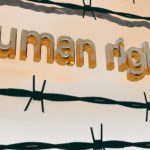Queensland Anti-Bikie Laws: A Return to the Moonlight State?
Queensland has introduced tough new anti-bikie laws. Kate Galloway, Senior Lecturer at the School of Law at James Cook University, sees a number of problems with the new legislation.
The month of October has seen an extraordinary suite of legislative change in Queensland, spearheaded by what the government calls an ‘emergency’. In a crackdown (‘war’) on bikies, Parliament has passed a number of laws designed to ‘destroy’ criminal bikie gangs in Queensland.
The laws declare a number of gangs unlawful – including rendering it an offence to enter a clubhouse or to wear the club’s ‘colours’. As a result, a man in Mt Isa was arrested and had a club belt buckle confiscated and destroyed, and two Cairns men have been arrested for entering the Cairns Odin’s Warriors’ clubhouse. Further, the Vicious Lawless Associations Disestablishment Act imposes mandatory sentences upon those who carry out an offence in furtherance of the aims of an association. There is a list of offences, including murder and drugs offences, sex offences and publication of obscene materials. The definition of association is any group of more than three people.
For bikies before the Crime and Misconduct Commission, failure to answer questions will result in a mandatory finding of contempt.
The Premier, Campbell Newman, has proposed a bikie ‘super prison’ – where all bikies will be sent, to be held in solitary confinement for 23 hours a day. Additionally a proposal has been floated to require bikie inmates to wear pink overalls to ‘embarrass’ them.
Motorcycle enthusiasts have been caught up in this hysteria, and the Police Commissioner has apologised ‘for any inconvenience’. Members of public have, however, been reassured that they have nothing to fear if they have done nothing wrong. This comment perhaps represents the most frightening development of all.
There are a number of fundamental problems with these legislative changes. Premier Newman has himself acknowledged that criticism of the changes is ‘legally and philosophically correct’.
First, the laws attack freedom of association. Rather than criminalising an act, they criminalise mere association with another person or organisation even if the person has done nothing wrong. So the reassurance of government – not to fear if we have ‘done nothing wrong’ – is hollow indeed. There is a fundamental human right of free association and this has been overturned.
Second is the assumption of criminality of gangs, overturning the presumption of innocence. The government rhetoric is of ‘these criminal gangs’. However criminality under our system of governance and law is determined by charge, trial and a finding of guilt. Our system is already structured to determine criminality, yet the government presumes criminality of both gangs and individual members and uses this to justify the imposition of its new laws and the winding back of civil liberties.
Third is the winding back of judicial power. The separation of powers is a central tenet of the Westminster system – and of liberal systems of governance generally. While not embodied within Queensland’s constitution (as it is in the Commonwealth Constitution) it is generally honoured in practice. It means balancing the power of the state through separating powers to make and enforce laws. The idea behind it is that having one institution/person enact a law and also determine its application without the chance for independent review, vests too much power in that one institution/person.
In another law passed during October, the Queensland Attorney-General has reserved power to jail convicted sex offenders indefinitely. He has deliberately removed the power of review from parole boards and the Courts. Along with the mandatory sentencing under the anti-bikie laws, this represents a breakdown of the separation of powers.
Fourth is the lack of consultation preceding the introduction of the legislation. Normally legislation in draft would be circulated for comment and submission, including to the Opposition and to interested parties such as the Law Society. In the case of the anti-bikie legislation, there was only limited exposure of the draft bills. The bills themselves acknowledge this in their Explanatory Notes, citing an emergency situation as a valid reason to circumvent this process.
Because Queensland has only a lower house and such a large government majority, the consultation process perhaps is even more important than it might otherwise be. The Premier however has accused the legal profession in speaking out against these legislative moves, of living ‘in ivory towers’ and failing to appreciate the concerns of ‘ordinary Queenslanders’.
Finally, it is concerning to note the layers of punishment to be ‘unapologetically’ meted out to bikies. Mere association, to choice of clothing and tattoos, to self-incrimination, mandatory sentencing, solitary confinement and a desire to ‘embarrass’ inmates all amount to a compounding of punishment. Prisons are designed as punishment, and despite popular misconceptions of prisons as somehow ‘easy’, having one’s liberty taken away is punishment in itself (regardless of access to television and visitors). Punishing those sent to prison in addition to their lawfully imposed sentence breaches foundational principles of criminal law.
A Courier Mail editorial calls the laws draconian, but congratulates the government on its ‘brave’ move, likewise acknowledging the importance of these laws to ordinary Queenslanders. This ignores the importance to each citizen of the rule of law, a central component of good governance. It is true that we have not returned to the days before the Fitzgerald Inquiry. However these laws represent the foundation for such a return. Investing enormous and arbitrary power in ministers and police is a recipe for bad decision-making, particularly where there is no scope for review.
Bikies may well be unpopular. Some of their activities may well be unlawful. However this is insufficient to justify Queensland’s deviation from the norms of good governance and good law-making – particularly in light of the lack of evidence justifying such an approach. Each time we accept a winding back of civil liberties, each of us is damaged as a citizen. The gate is opened for broader application of such laws: first to other unpopular groups, and then as the occasion demands. At the same time, as was so starkly illustrated by the Fitzgerald Inquiry, unchecked discretion in one institution opens the way for corruption.
The shame of this is that Queensland seems to have learned nothing from the ground-breaking Fitzgerald Inquiry. Queenslanders must demand that the government uphold civil liberties. Government must suspend its populist rhetoric and take a considered approach to fundamental principles of good governance and the rule of law. Otherwise I fear that Queensland will return to the days of the Moonlight State.
Kate Galloway is senior lecturer at the School of Law at James Cook University. She blogs on issues concerning women and justice at her website Katgallow. Follow her on Twitter @katgallow.
















interpolated
December 15, 2013 at 11:44 am
A breach of the constution
109. Inconsistency of laws When a law of a State is inconsistent with a law of the Commonwealth, the latter shall prevail, and the former shall, to the extent of the inconsistency, be invalid. 80. Trial by jury The trial on indictment of any offence against any law of the Commonwealth shall be by jury, and every such trial shall be held in the State where the offence was committed, and if the offence was not committed within any State the trial shall be held at such place or places as the Parliament prescribes.